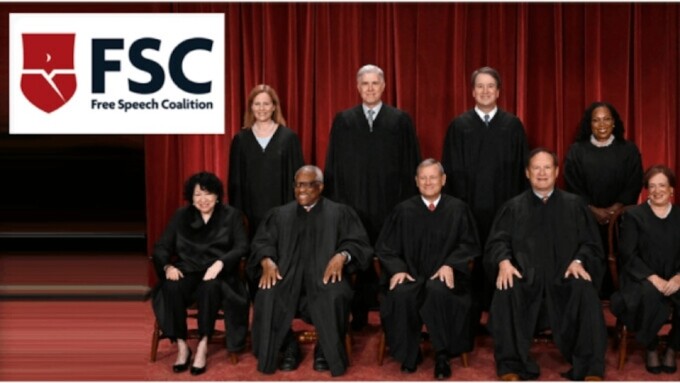WASHINGTON — The Supreme Court on Monday granted a motion by the U.S. solicitor general to participate in Free Speech Coalition v. Paxton, the case challenging Texas’ controversial age verification law.
On Nov. 18, U.S. Solicitor General Elizabeth Prelogar filed a motion requesting leave to participate in oral arguments in the case as amicus curiae, or “friend of the court,” on the grounds that “the United States has a substantial interest in the First Amendment issues presented in this case.”
The U.S. government’s position is that FSC v. Paxton should be sent back to the 5th Circuit Court of Appeals for application of strict scrutiny, a higher level of constitutional review than the 5th Circuit applied when it partially upheld Texas’ HB 1181 in March.
The solicitor general’s participation in the case could be a mixed bag for FSC and the other plaintiffs. While the government's position supports the plaintiffs’ contention that the 5th Circuit should have applied strict scrutiny rather than merely “rational-basis” review in its decision, the U.S. is notably not asking the Supreme Court itself to apply strict scrutiny or declare the law unconstitutional, which would be the preferred outcome for the plaintiffs.
Instead, according to the solicitor general’s motion, the U.S. believes that “the First Amendment does not foreclose appropriately tailored measures to restrict the distribution of harmful sexual material to children on the Internet — potentially including age-verification measures.”
The motion adds that, in the opinion of the U.S. government, “appropriately tailored age-verification laws may satisfy strict scrutiny.”
According to industry attorney Corey Silverstein, strict scrutiny “has always been the only and appropriate level of scrutiny to apply in this case.”
“Texas’ position is simply legally incorrect,” Silverstein told XBIZ. “I don’t feel that the U.S. solicitor general’s participation will change the outcome of the case because I remain confident that SCOTUS is going to overturn the 5th Circuit’s erroneous holding.”
Should the case be remanded back to the 5th Circuit as the solicitor general recommends, however, that court may still declare the Texas law constitutional.
The 5th Circuit has caused controversy in recent rulings, with some civil liberties advocates even labeling it a “rogue” court. Earlier this year, the Center for American Progress warned that the 5th Circuit “has allowed extremist lower court judges to issue sweeping, politically fraught rulings that advance right-wing policy positions. In doing so, the 5th Circuit invites the Supreme Court — currently dominated by right-wing extremists to a degree unseen in modern history — to take sweeping action to roll back decades of progress.”
Oral arguments before the Supreme Court in Free Speech Coalition v. Paxton are scheduled for Jan. 15.








